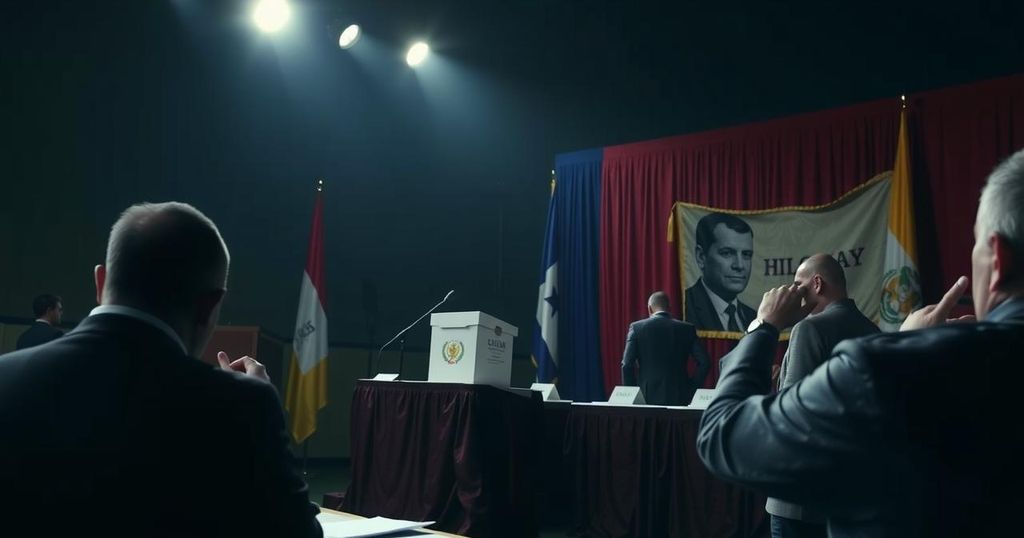Uruguay is set for a presidential runoff election between Álvaro Delgado and Yamandú Orsi after a tight race in the first round. The election reflects a significant political contest, focusing on economic management and public safety, with many voters still undecided. Both candidates offer contrasting visions for the country as they address concerns about crime and governance, with significant implications for Uruguay’s future.
Uruguay’s presidential race has transformed from an unremarkable election to a fiercely contested runoff, featuring Álvaro Delgado of the ruling National Party and Yamandú Orsi of the leftist Broad Front coalition. While Orsi’s coalition garnered 44% in the first round of voting, Delgado’s party, alongside other conservative allies, accounted for 27% and remains competitive due to an evenly split Congress. With a significant number of undecided voters, the candidates are addressing key issues including economic management and rising crime rates, ultimately making this election a pivotal moment for Uruguay’s political landscape.
Delgado’s campaign seeks to maintain the policies of the outgoing President Luis Lacalle Pou, with an emphasis on continued economic growth and trade agreements, notably with China. Conversely, Orsi aims to introduce reforms and investments to support social programs and a thriving agricultural sector. Despite the lack of extreme political polarization, this election highlights the importance of stability and economic well-being in Uruguay’s ongoing democracy.
Uruguay has historically been known for its stable democratic institutions and moderate political climate. The Broad Front coalition, which previously held power for 15 years focusing on social reforms, faces a significant challenge in this runoff after losing to the center-right National Party in the 2019 election. The current political landscape reveals a divided electorate and an emerging tension surrounding economic management and societal issues, such as crime rates, shaping the candidates’ platforms and public responses.
The runoff election in Uruguay represents a critical juncture for the nation’s political future, reflecting a balance between the conservative governance under Álvaro Delgado and the leftist reforms proposed by Yamandú Orsi. As both candidates navigate a tightly contested landscape marked by voter indecision, their respective strategies will determine not only electoral outcomes but also the trajectory of Uruguayan society amidst pressing economic concerns and rising crime. This election illustrates the resilience of Uruguay’s democratic processes even in the face of societal challenges.
Original Source: apnews.com






